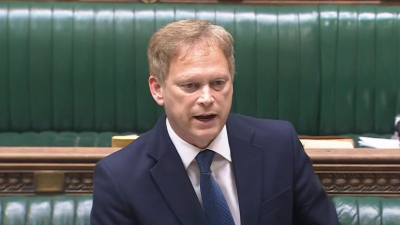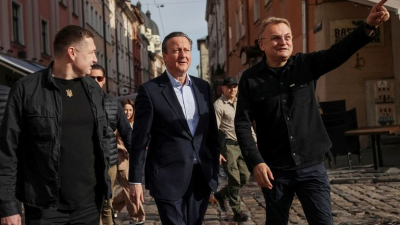"End of the Hollywood Standoff: US Actors Union Reaches Historic Deal to Conclude 118-Day Strike"
In a groundbreaking turn of events, the US actors union, Sag-Aftra, has reached a "tentative deal" with Hollywood studio executives, putting an end to the longest strike in the union's history, which spanned 118 days. The unanimous vote signals the conclusion of the walkout, with the strike officially ending at 12.01 am US Pacific time on Thursday.
Representing approximately 160,000 industry members, the union's negotiating committee deliberated for days, deeming various items, including artificial intelligence, as "essential" in the resolution. The breakthrough followed the Alliance of Motion Picture and Television Producers' (AMPTP) "last, best and final" offer—the group representing studios, streaming services, and producers in negotiations.
While the tentative deal is set to undergo review and consideration by the Sag-Aftra national board on Friday, the union emphasizes its extraordinary scope. Valued at over one billion dollars, the contract includes provisions addressing the threat of artificial intelligence and introduces "unprecedented provisions for consent and compensation."
Grey's Anatomy star Patrick Dempsey voted People magazine's sexiest man alive for 2023, Succession actor Alan Ruck involved in pizza restaurant truck crash, and Hollywood couple Channing Tatum and Zoe Kravitz engaged—all news stories temporarily overshadowed by the significant Hollywood labor dispute.
The union's statement underlines the far-reaching impact of the achieved contract, providing a foundation for sustainable careers across various categories within Sag-Aftra. With a focus on benefiting both current and future performers, the union declares this agreement as a milestone that will shape the industry in the years to come.
On the other side of the negotiating table, the AMPTP acknowledges the tentative agreement as representing a "new paradigm," signaling a transformative shift in the dynamics of labor relations within the Hollywood landscape. The resolution marks not only the end of a prolonged strike but also a pivotal moment in defining the future of the entertainment industry.
"A New Era for Hollywood: Sag-Aftra's Historic Contract Achieves Unprecedented Gains"
Sag-Aftra's historic agreement with Hollywood studio bosses marks a monumental shift in the entertainment industry, delivering the largest contract-on-contract gains in the union's history. The resolution, ending the 118-day strike, boasts significant milestones, including the most substantial increase in minimum wages in the last four decades, a groundbreaking residual for streaming programs, and comprehensive protections addressing the use of artificial intelligence.
As news of the agreement reverberated through Hollywood, red carpets became platforms for jubilation. At the premiere of "The Iron Claw," actor Zac Efron expressed his excitement, stating, "This is great news, congrats everybody we did it, love you guys, let's go." Alec Baldwin, leading a chorus of celebrations on Instagram, commended everyone involved in making the historic occasion a reality.
Academy Award winner Octavia Spencer couldn't contain her joy, exclaiming, "Who else is dancing right now? Ready to work now that the strike is over!" Mandy Moore, of "This Is Us" fame, expressed gratitude to Sag-Aftra negotiators and leadership, urging everyone to get back to work. Jamie Lee Curtis, an Oscar-winner, emphasized that perseverance had paid off, capturing the sentiment echoed by many in the industry.
Los Angeles Mayor Karen Bass shared an official statement, expressing gratitude for the "fair agreement" and acknowledging the profound impact on the city's economy. She emphasized the importance of leaning into local production to ensure the entertainment industry rebounds stronger than ever.
This landmark resolution comes on the heels of industry chief executives walking away from the bargaining table weeks ago, eliciting profound disappointment. The union's unwavering commitment to its members and the transformative gains achieved in this agreement underscore the resilience and power of collective action in shaping the future of Hollywood. As the industry prepares to rebound, the ripple effects of this historic deal are poised to redefine the landscape of labor relations in entertainment.
"Hollywood's Resilience: A Reckoning of Strikes and Solidarity"
Hollywood, once bustling with creativity and production, found itself at a near-standstill for months, grappling with the echoes of both actors and writers strikes. The latest breakthrough with the actors' union, Sag-Aftra, ending the 118-day strike, follows a similar path taken by the Writers Guild of America (WGA) in September. The WGA, representing over 11,000 members, reached an agreement with studio bosses after an arduous 146 days on the picket line, centered around issues of fair pay and the looming threat of artificial intelligence.
Throughout this challenging period, Hollywood stars became beacons of solidarity, with figures like US director Olivia Wilde and "Ted Lasso" star Jason Sudeikis standing shoulder to shoulder on the picket line. The industry, often defined by glitz and glamour, showcased a different face during these strikes — one of unity, resilience, and a shared commitment to addressing pressing issues within the entertainment landscape.
As the lights begin to flicker back on in Hollywood, the aftermath of these strikes becomes a defining chapter in the industry's history. The collective actions of actors and writers have not only secured vital gains but also amplified the importance of standing together in the face of transformative challenges. The solidarity exhibited by Hollywood stars transcends red carpets and silver screens, reminding the world that even in the realm of fantasy, the power of collective action shapes the reality of the entertainment industry.
In conclusion, the resolution of the Sag-Aftra strike in Hollywood, following the earlier Writers Guild of America agreement, signifies a turning point for the industry after months of near-standstill. The actors' and writers' strikes, marked by picket lines and the resolute solidarity of Hollywood stars, have not only addressed crucial issues of fair pay and the impact of artificial intelligence but have also spotlighted a different facet of the industry—one characterized by unity and resilience.
As the lights begin to shine again on the Hollywood stage, the aftermath of these strikes becomes an indelible chapter in the industry's history. The collective actions of actors and writers have secured unprecedented gains, underscoring the significance of standing together in the face of transformative challenges. Beyond the glamour and glitz, the solidarity displayed by Hollywood stars serves as a powerful reminder that, even in the realm of fantasy, the real-world impact of collective action shapes the future of entertainment. The industry now stands at the threshold of a new era, marked by the triumph of unity and the enduring spirit of those who bring stories to life on screens big and small.







